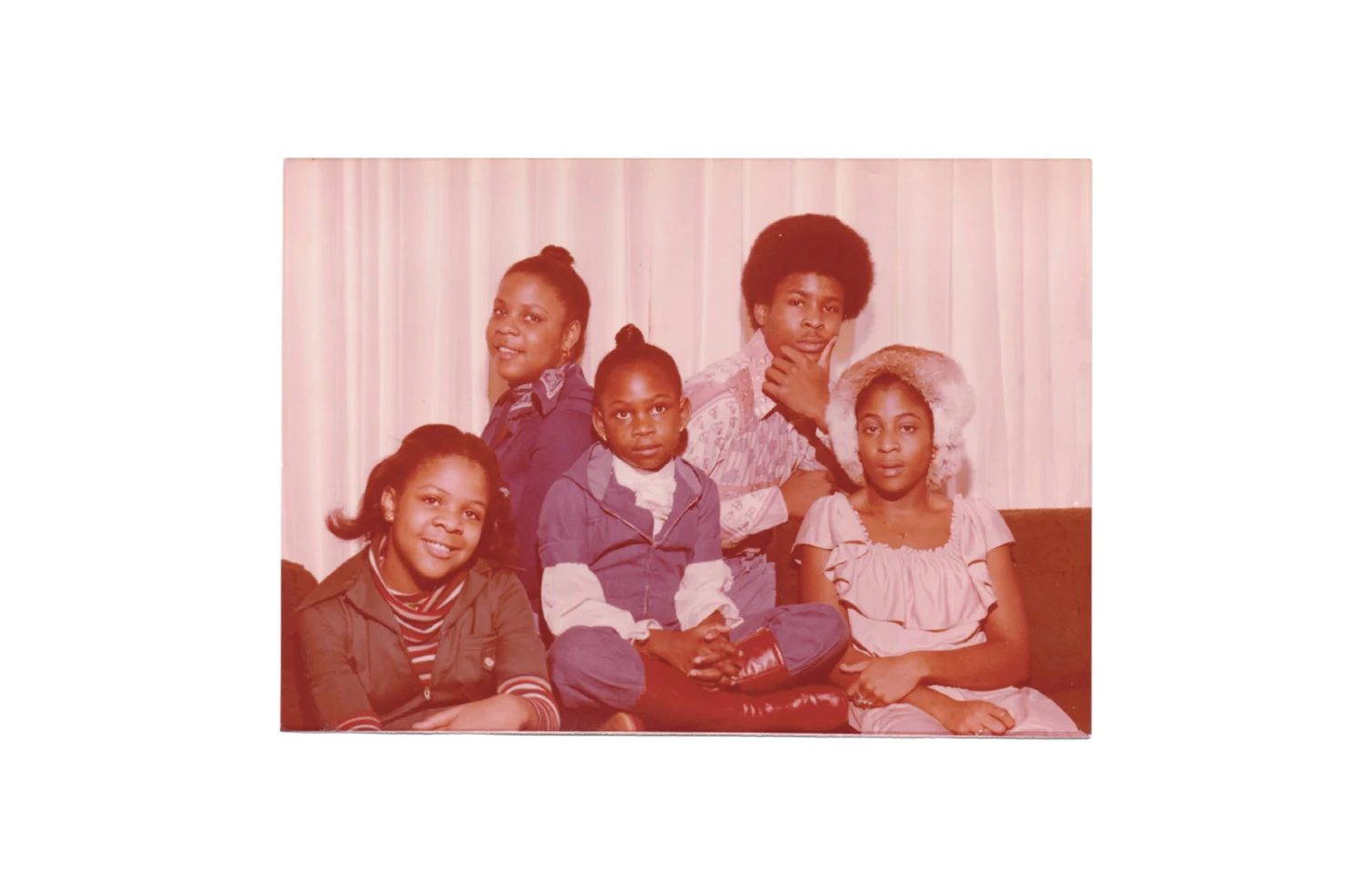code-switching
welcome:
Speak to us, Lord. We are your servants and we are ready to listen.
I Samuel 3:10
a thought to consider:
So you're at work one day and you're talking to your colleagues in that professional, polite kind of buttoned-up voice that people use when they're doing professional work stuff.
Your mom or your friend or your partner calls on the phone and you answer. And without thinking, you start talking to them in an entirely different voice — still distinctly your voice, but a certain kind of your voice less suited for the office. You drop the g's at the end of your verbs. Your previously undetectable accent — your easy Southern drawl or your sing-songy Caribbean lilt or your Spanish-inflected vowels or your New Yawker — is suddenly turned way, way up. You rush your mom or whomever off the phone in some less formal syntax ("Yo, I'mma holler at you later,") hang up, and get back to work.
Then you look up and you see your co-workers looking at you and wondering who the hell you morphed into for the last few minutes.
That right there? That's what it means to code-switch.
Linguists would probably quibble with our definition (the term arose in linguistics specifically to refer to mixing languages and speech patterns in conversation). But we're looking at code-switching a little more broadly: many of us subtly, reflexively change the way we express ourselves all the time. We're hop-scotching between different cultural and linguistic spaces and different parts of our own identities — sometimes within a single interaction.
Gene Demby, NPR: How Code-Switching Explains the World
something Jesus said:
“My sheep recognize my voice. I know them, and they follow me.”
John 17:21
a story:
Then His disciples approached Jesus and asked, “Why do you always speak to people in these hard-to-understand parables?” He explained, “You’ve been given the intimate experience of insight into the hidden truths and mysteries of the realm of heaven’s kingdom, but they have not. For everyone who listens with an open heart will receive progressively more revelation until he has more than enough. But those who don’t listen with an open, teachable heart, even the understanding that they have will be taken from them. That’s why I teach people using parables, because they think they’re looking for truth, yet because their hearts are unteachable, they never discover it. Although they will listen to me, they never fully perceive the message I speak.
Matthew 13: 10-13
reflection:
“Language is a proxy for identity, and so code-switching is an apt metaphor for handling more than one identity."
The Economist, Code-Switching: How to Be Black? Moving Back and Forth between Accents and Dialects
"We're not guys," the tall, light-skinned girl snapped. The beads dangling from the end of each of her braids clacked together with the whip of her head. The other two girls, both brown and lean, stood on either side of her and exchanged looks of "you gotta be kidding" with the ring leader. They all stood with their arms folded across their chests waiting to be free to go home.
It was the beginning of summer - my first summer with my mother since she'd turned my care over to my grandparents. My mother wanted to be sure I had some friends to play with and so she invited some neighborhood girls over to our backyard. It must have been a favor because these girls were not a willing welcome-wagon. Before I'd even spoken they rolled their eyes slowly over me, starting with my cheap sneakers and moving over to my green cotton shorts, on up to my tank top, straight to my dried-up, tumbleweed afro puffs. Nothing they saw was impressive. And I didn't blame them. Then, hating the glaring silence, I asked, "So, do you guys wanna play?" Which prompted twisted up looks of disgust. "You guys? We're not guys," the ring leader said.
I could feel the tears gathering in my throat like a heavy cloud ready to break open. I nodded and went inside the house to find my mother sitting in the living room. "They won't play with me," I told her. She sighed without looking up from her magazine. I continued, "I asked them, 'Do you guys wanna play,' and they said that they're not guys." My mother chuckled as she lowered her magazine. Smiling at me, she said, "Just go back out there and say, 'Y'all wanna play?' Practice with me now. Go on 'head and say, 'Y'all wanna play?'" Confused, I repeated slowly, "Y'all wanna play?" My mother laughed again and returned to her Better Homes and Garden. "Go on back out there. Say it just like you said right here. Just say it like you couldn't care less if they want to play or not." I went and did as my mother told me. It was my very first code-switch, and I've spent my life code-switching between black and white culture ever since.
There's a story in the Bible about Mary and Joseph frantically searching for Jesus during a major Jewish festival. When they finally find Him listening, sharing, and weirding people out with His otherworldliness in the temple, the 12-year-old Jesus is surprised that they were so worried, saying "Didn't you know that I would be here in my Father's house?" But somehow, despite angels announcing His birth and the fact that Mary was an untouched, pregnant virgin, Mary and Joseph still didn't get it. They didn't get Jesus. Then the story goes on to say that Jesus obediently returned home with His parents and grew in wisdom and maturity. As He grew He also became popular, because it was clear that there was something very different about this young man. Even Mary, His own mother, could only wonder about Him, sitting back and watching Him in awe.
Here's my thought: what if up until that moment in the temple a very young Jesus was a complete enigma to all around Him because He spoke in a way that they could not understand? Perhaps He said many things throughout His childhood that were too much for them to take in. Think of the questions and observations an 8-year-old shares. Now consider an 8-year-old Jesus going through that phase of questions and observations. Precocious doesn't cover it. Mind-blowing does. He was the Son of God and the Son of Man. He spoke of things only the Son of God could know and understand, or even think to ask.
In order to accomplish all that He did, I believe Jesus realized as he matured that He was going to have to find a way to relate to the people around Him. How could He explain His Father to people who had never seen His Father? If His mother, who saw and spoke to an angel, couldn't even understand Him, then what hope did He have of teaching and training fishermen? Code-switching.
Jesus' students ask Him, "Why do you speak in parables?" He more or less answers, "So that you get me."
If language represents our different identities, then code-switching was a necessary tool for Jesus. He code-switched the language and culture of His kingdom in heaven with stories about the culture of His people here on earth. He takes the time to speak our vernacular to show us that He knows us. And because we are known by Him, we follow Him.
Like Jesus, we code-switch so that we can better relate. But, if we want to code-switch in a way that isn't mocking or diminishing of any of our identities - also like Jesus - we have to love others as we love ourselves. If we suddenly go gangsta with a group of inner city students or talk like valley girls but don't feel comfortable in those spaces, then we're not code-switching. We're just misrepresenting and pantomiming. Tired, useless stereotypes.
contemplation:
1. Psalms 29:4-5; 7-9 reads: “The voice of the Lord is powerful. The voice of the Lord is full of majesty. The voice of the Lord breaks the cedars. Yes, the Lord breaks in pieces the cedars of Lebanon. The voice of the Lord shakes the wilderness. The voice of the Lord makes the doe labor and give birth and strips the forests bare; and, in His temple all are saying, “Glory!” However, I Kings 19:11-12 reads: “Go out and stand before me on top of the mountain,” the Lord said to Elijah. Then the Lord passed by and sent a furious wind that split the hills and shattered the rocks—but, the Lord was not in the wind. The wind stopped blowing, and then there was an earthquake—but, the Lord was not in the earthquake. After the earthquake, there was a fire—but the Lord was not in the fire. And after the fire, there was the soft whisper of a voice.” Take a concordance or Google search all the passages in the Bible that describe God's voice. If code-switching is a metaphor for handling more than one identity, what is God's identity when He speaks with power? What is His identity when is His voice as gentle as a whisper?
2. Also note how Jesus' followers describe the way He spoke. Does He speak tenderly to anyone? Does He speak angrily to anyone? Is this a kind of code-switching? Does Jesus change the way He expresses Himself in order to be more relatable? How does Jesus' language and tone change when He is: 1) a teacher speaking to His students? 2) a son speaking to His Father? 3) a friend speaking with friends?
3. Start to notice how you speak to others. At what times does the way that you speak change your identity?
prayer:
O God, we thank you for the fact that you have inspired men and women in all nations and in all cultures. We call you different names: some call you Allah; some call you Elohim; some call you Jehovah; some call you Brahma; some call you the Unmoved Mover. But we know that these are all names for one and the same God. Grant that we will follow you and become so committed to your way and your kingdom that we will be able to establish in our lives and in this world a brother and sisterhood, that we will be able to establish here a kingdom of understanding, where men and women will live together as brothers and sisters and respect the dignity and worth of every human being. In the name and spirit of Jesus. Amen.
Dr. Martin Luther King Jr.
blessing:
May we speak His language and imitate His love. Amen










